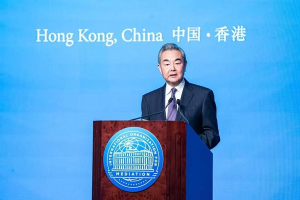
BY WOSSENSEGED ASSEFA
‘Ease of Doing Business’ has been among the issues raised by the FDRE Prime Minister Abiy Ahmed on his speech to the parliament few days ago. As an economist and an entrepreneur who has toiled to start a business, this particular issue is of my interest. Anyone who has tried to get business licenses from the respective government offices shares the feeling that this article discusses. The punitive business culture we have as a nation has [negatively] affected our economy a lot.
Whether by intent or ignorance, most governments in Least Developed Countries (LDCs) adopt and maintain business regulations that burdens entrepreneurs. Among many other factors, such burdensome business regulations make economies inefficient and blocks growth. A good business environment on the contrary is what enables private businesses to prosper more and contribute better to the economy. The more successful the private sector is and the more businesses are created, the more opportunities there will be for employment.
Governments need to ease the business regulations and lower the cost doing business and pave the way for entrepreneurs to join the world of business. If governments fail to do so and limit entrepreneurs’ ability to freely run their businesses, it would have adverse consequences on the economy. Entrepreneurs when face tight regulations of doing business, they oftentimes resort to informal activity which in turn makes the government lose the amount of tax it should have collected had they been running their businesses in the formal licensed business activities. And investors with huge capital might fly their businesses to abroad where regulations are easier and less corrupt. The flight of capital would in turn result in taking away the job opportunities it could have created for the local economy. Foreign investors on the other hand tend to avoid economies that use regulation to manipulate the private sector. It can therefore be concluded that the ease of doing business an economy adopts plays a significant role in determining the economic growth a particular nation would achieve.
By and large, the very core purpose of regulations is protection not restriction. Labor regulations for instance aim to protect workers from mistreatment of gluttonous employers; public procurement regulations aim at ensuring that public infrastructures are well built; business regulations aim to protect business firms from burdensome bureaucracies and unfair business environment. The reality on the ground is however the reverse. Particularly in least developed countries (LDCs), it is unfortunate that regulations seem to miss their goal of protection and tend to be more restrictive.
Investors and/or entrepreneurs consider several variables before placing their assets on a particular business. Among the variables that potential investors takes into consideration: the overall quality of an economy’s business environment and its national competitiveness, macroeconomic stability, development of the financial system, market size, rule of law, and the quality of the labor force are the major ones (World Bank 2020). Ease of doing business is also among the crucial variables to be considered. According to the World Bank report (Doing business 2020), ‘an entrepreneur in a low-income economy typically spends around 50 percent of the country’s per-capita income to launch a company, compared with just 4.2 percent for an entrepreneur in a high income economy. It takes nearly six times as long on average to start a business in the economies ranked in the bottom 50 as in the top 20.’
The World Bank has been publishing a report on Ease of Doing Business (EoDB) annually since 2004. With few improvements on the ranking criteria since then, the World Bank currently ranks countries of the world in the following Doing Business ranking criteria. It uses ten criteria in evaluating the business environment in each of the countries under evaluation: starting a business, dealing with construction permits, getting electricity, registering property, getting credit, protecting minority investors, paying taxes, trading across borders, enforcing contracts, and resolving insolvency.
In the 2020 Doing Business report of the World Bank, Ethiopia ranks 151 out of 190 countries evaluated. This is an indicative of the system’s failure to enhance the regulations than serve and protect the interests of entrepreneurs and investors. Getting a business license is a very burdensome task for startups. The requirement that must be met to get a license and run a business activity is sometimes costlier than the profit the business might collect after operation. Entry barriers such as lengthy firm start-up procedures and high cost of doing business affect economic growth by hindering the creation of new businesses. Some experts even argue the very notion of licensing saying that ‘it is of course our responsibility to let the government know what we want to do. But why would we be obliged to ask the government a permission to run a business in the first place?’ they say. Well, it might seem it is an extreme view but it has some truth in it. On the other hand, the professional capacity and attitude of the public servants that entrepreneurs deal with while licensing is so unwelcoming.
By and large, we have this punitive culture in almost all aspects of our social life. We tend to be more restrictive than toiling to pave the way of success to others. This is the culture that is darkening the business atmosphere in the nation. Even when declaring a business income tax, the tax collectors and the authorities in the business tend to regard the tax payers as deceitful entities. The authorities oftentimes fail to acknowledge that the source of revenue for government they are working for and the salaries they receive each month is from the tax payments they collect from those whom they regard as fraudulent. They think that the businesses exist because the government exists, but it is the reverse that is true.
Getting access to credit is another challenge that we face in doing business. Commercial banks and micro-finances mostly focus in making profit. There is of course nothing wrong with that. However, they are expected to engage in money and/or economy creation as much as they toil to collect the money. Competition in stealing one customer form the other bank doesn’t contribute to the growth of an economy. It is money/economy creation that helps an economy grow. To do so, banks and micro-finances need to support and take a risk in providing credit for young entrepreneurs and investors who come up with feasible projects to get their business started and expanded, respectively.
It is however unfortunate those banks require an equivalent or more valuable asset as collateral for the loan they would provide. Banks need to change this punitive culture and engage in nurturing business to soar high. I hope and believe this would change since banks have collected billions of money following the demonetization of banknotes. However, this does not mean that banks should throw away their money to those who request loans. Some bankers I talked to on this regard said, ‘it would be very easy for us to give credit services (without collaterals) to our customers if there is a national ID (biometric ID – with fingerprints) that helps us to track them if they fail to repay their loans.’
The technological backwardness coupled with the punitive attitude is crippling the efforts of many entrepreneurs. Economies that score highest on the ease of doing business share several common features, including the widespread use of electronic systems. All of the 20 top-ranking economies have online business incorporation processes, have electronic tax filing platforms, and allow online procedures related to property transfers; so are the areas we need to work on.
It is worth mentioning the discussion I had with one prominent business guru in Ethiopia on the issue of job creation vis-à-vis regulations on employment. He said, ‘One of the main reasons why companies don’t hire workers very often is because they can’t easily fire the worker whenever they need to.’ The employment regulation, he continued, seems to protect the interests of employees at face value, but it is what makes job seekers not get jobs easily. Employers don’t need to face the hassle of going to courts and file cases if they need to fire workers. If they are free to fire a worker (like in the modern world) they would tend to employ more workers to their companies. Flexibility in employment regulation is therefore one area that Ministry of Labor and Social Affairs (MoLSA) need to reconsider, he added.
In its very nature, bureaucracy has a tendency to keep everything in their grip, as though the country will be destroyed if an entrepreneur is allowed to run his / her businesses without too many licenses and permissions from them. However, it should be note that without a dynamic private sector participation in creating jobs, maintaining economic growth, ensuring inclusive development is impossible. Therefore, the government has to create a room for patriotic business gurus, finance experts, honorable business personalities to engage in the business policy making processes so as to facilitate the ease of doing business for the domestic producers as well as foreign.
Stay Safe!
Editor’s Note: The views entertained in this article do not necessarily reflect the stance of The Ethiopian Herald
THE ETHIOPIAN HERALD JULY 21/2021




